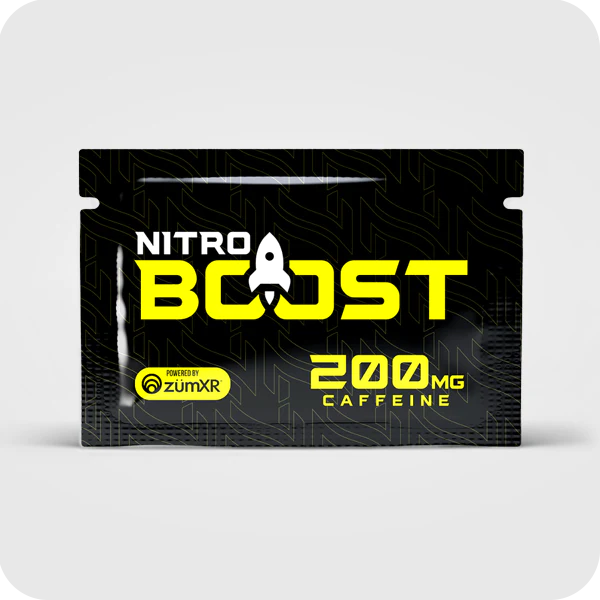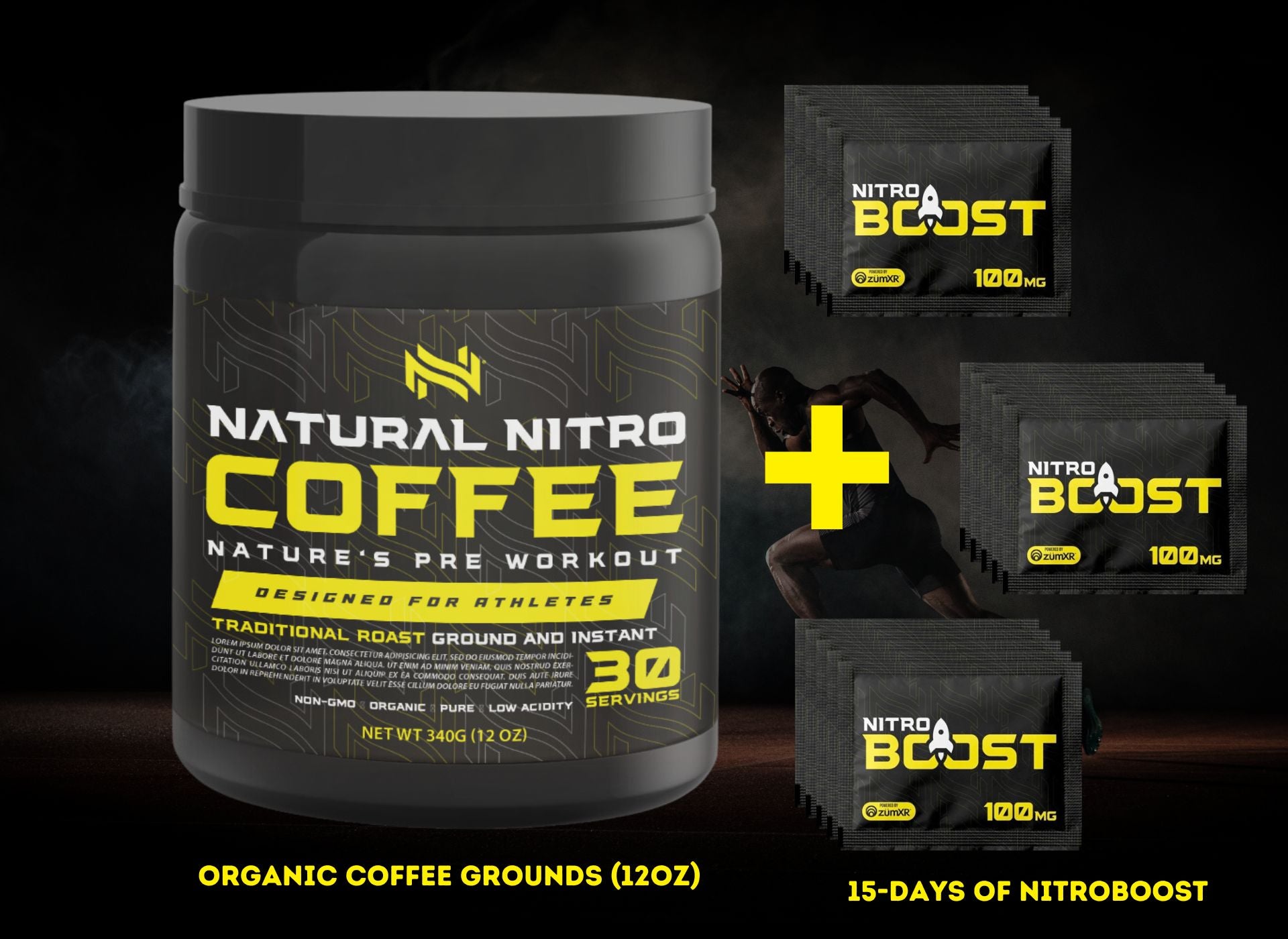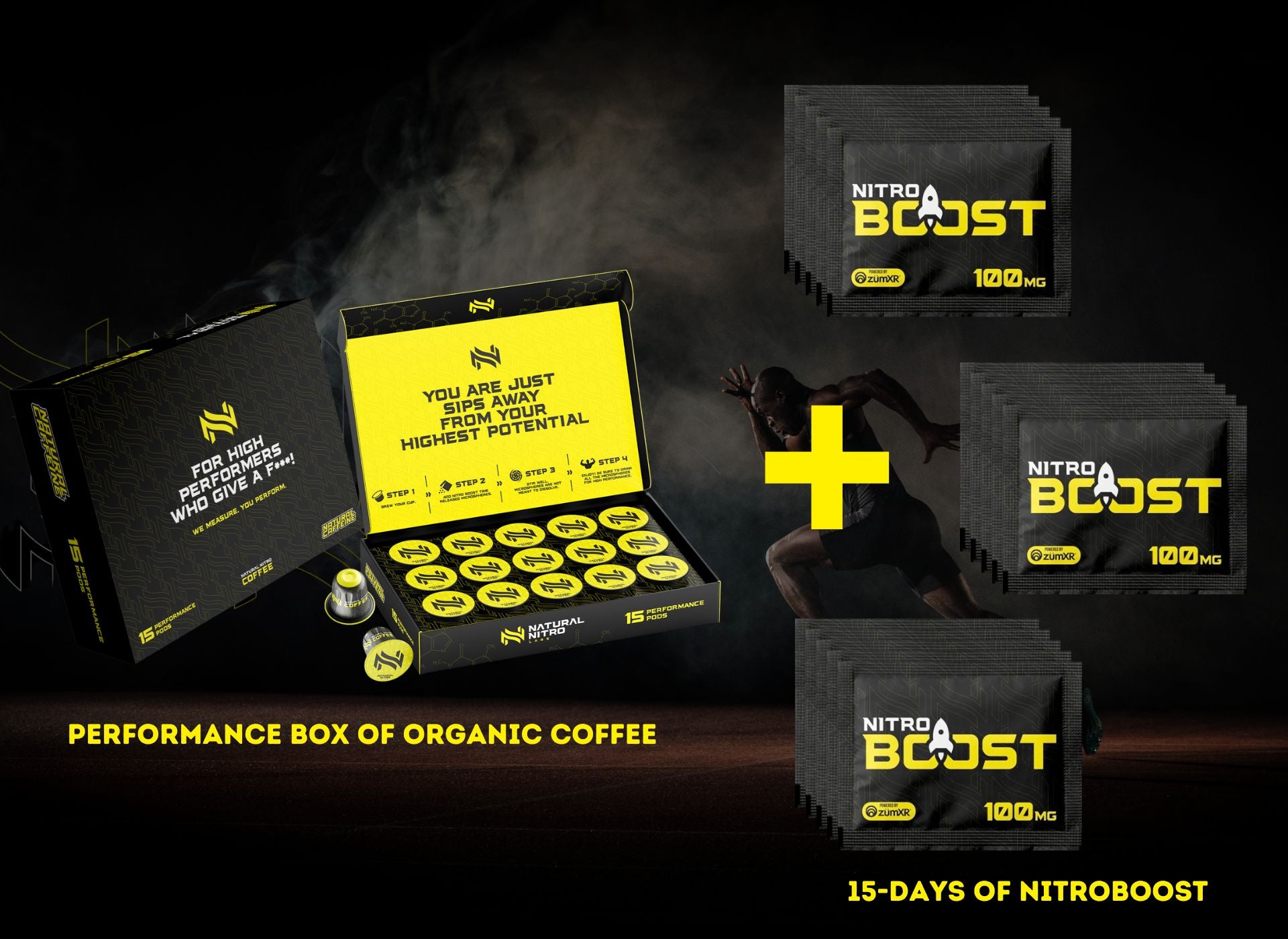There are several reasons why athletes drink coffee prior to a sporting event, and we’re going to discuss how a measured approach to caffeine delivery is the solution to caffeine overdose for athletes who seek an edge over their competitors by using caffeine as an ergogenic aid. Brew a cup, sit back, and let’s talk about coffee for athletes.

Shalane Flanagan, the 10K bronze medalist at the 2008 Olympics, recently qualified to the 2016 Games in the marathon. She says, "I wouldn't go to the line without a cup of coffee." Jonathan Moore/Getty Images
“I don't know an endurance athlete that doesn't have a cup at least a couple hours before a race. Personally, I wouldn't go to the line without a cup of coffee. On our team, we joke that coffee is our PED [performance-enhancing drug],” said Flanagan.

Diver Abby Johnston (left) says she'll sometimes go to the pool deck with her cup of coffee. She's pictured here with Christina Loukas sneaking into the London Olympic venue with her Starbucks. Via ESPN Courtesy of Abby Johnston
Johnston says, “Yeah, it helps alertness. If I don't have enough time to finish my cup before practice, I'll just bring it on the [pool] deck. Luckily my Italian coach loves coffee, too, so he understands.”

Photo by Boris Diaw via his Instagram account
Portland Trailblazer star Damian Lillard and other NBA players are obsessed with coffee just like WNBA legend Sue Bird, who says, one cup of coffee per day is key to her basketball greatness.

Photo by Catherine Steenkeste/NBAE via Getty Images
It’s really no secret that athletes drink coffee as a performance enhancer before their sporting events. It’s also commonly known that the chemical stimulant behind coffee is a well known compound called caffeine. This magical compound provides natural performance enhancing properties, but the little known trick is that you have to ingest it carefully to get all the benefits while staying away from possible side effects commonly associated with a caffeine overdose.
Let’s get the hard truth out of the way first. Yes, you can overdose on caffeine. Period, end of story. Look, just like everything else, too much of any good thing can also be bad for you. As was the case with an amateur body-builder athlete who had a Fatal cardiac arrhythmia following a caffeine overdose. Or these male and female athletes who also suffered a fatal overdose. Sad things like these do occur, but most athletes don’t take their caffeine intake to the extreme, most use it responsibly, but here’s a brief on caffeine toxicity if you want to delve deeper into what taking your caffeine intake too far may do to your body.
As any competitive athlete, you want to know how much is too much and where do I start getting diminishing returns from my caffeine intake, right? Well, I’m going to answer that question for you, so keep reading.
The general consensus is that caffeine is a popular and widely consumed sporting ergogenic aid. Over the years, the effects of different caffeine doses have been researched, with the general consensus being that 3 to 6 mg/kg of caffeine represents the optimal dose for athletes. There are tools available that help you calculate the optimal dose for your body weight, body type, and BMI so you get the dial in the exact amount of caffeine your body needs.
This is the golden ratio that you need to follow so that you can get all the benefits of this magical compound coffee drinkers love so much while avoiding the nasty negative side-effects. There is such a thing as too much caffeine and new companies coming up with ways to meet the demands of the athletes who care about their precise caffeine intake.
There’s a company out of Las Vegas called Natural Nitro Labs that formulates measured performance caffeine pods that deliver exact caffeine dosages for optimal performance. What this means is that you get the precise amount of caffeine to receive 100% of the ergogenic effect, while not going over your optimal dose to avoid the negative side-effects that could occur with caffeine overdose, such as Rhabdomyolysis and acute renal failure. Rhabdomyolysis and renal failure can be largely avoided by not taking too much caffeine and being conscious about exactly how much caffeine you’re putting into your body. Top performance athletes are beginning a new trend by starting to measure precisely everything that goes into their body to avoid the negative side-effects of their supplementation regimen while at the same time still enjoying all the ergogenic effects. This is the next rung up on the ladder towards total optimization, and top level athletes are always ahead of the curve when it comes to nourishing their body with the things that it needs and in the doses it requires to yield optimal performance when they need it most. Athletes are always looking for new companies that can meet these high demands and we will be on the lookout for any that step up to the plate because the ones that do will benefit greatly from providing athletes the measured performance supplements they demand.





